Alright – so today we’ve got the honor of introducing you to Nazia Siddiqui. We think you’ll enjoy our conversation, we’ve shared it below.
Nazia, looking forward to hearing all of your stories today. Let’s kick things off with your mission – what is it and what’s the story behind why it’s your mission?
Growing up in India, I always loved going shopping with my mom and sisters to the bustling bazaars filled with small businesses. We would pick out the fabric and trims, take it to our tailor, give our custom measurements, and pick up our outfits in a few days. I learned about different types of fabrics from my mother who loved creating outfits for my sister and me.
Moving to the United States in my teens, I noticed the vastly different styles in how people dressed, and the lack of access to hand-crafted luxury clothing. The options were mostly mass-produced clothes at department stores in basic colors and silhouettes. Then in early 2000s, the popularity of fast fashion sky-rocketed and my peers and I found ourselves going through the racks of Zara, Forever 21, H&M and Charlotte Rousse every opportunity we got. As a college student, it was exciting to be able to find cute clothes at attainable price points. However, the 2013 tragedy of the Rana Plaza collapse in Bangladesh, where more than 1100 workers died while working in unsafe conditions for fast fashion retailers, changed my perspective on the industry.
After a 15-year corporate career, I decided to launch a fashion brand, Transcend, that focuses on preserving India’s heritage crafts like embroidery and block prints while serving as a vehicle for uplifting artisans and preserving our planet. The brand is rooted in the principles of sustainability and ethics, and some of my business practices include using natural (plastic-free) fabrics, a preorder business model to prevent inventory waste, sustainable packaging, and a give-back program that directly benefits the makers and artisans.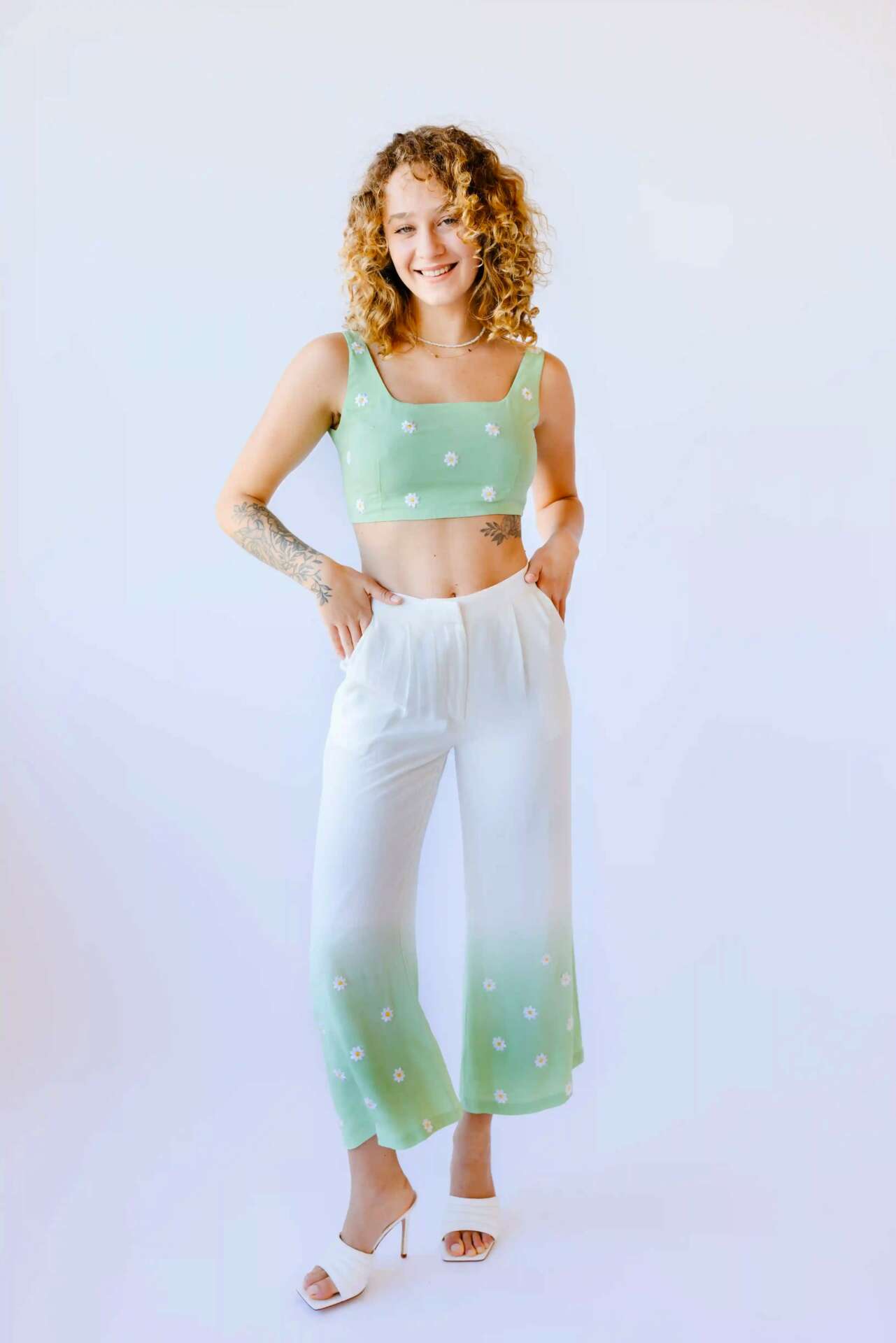
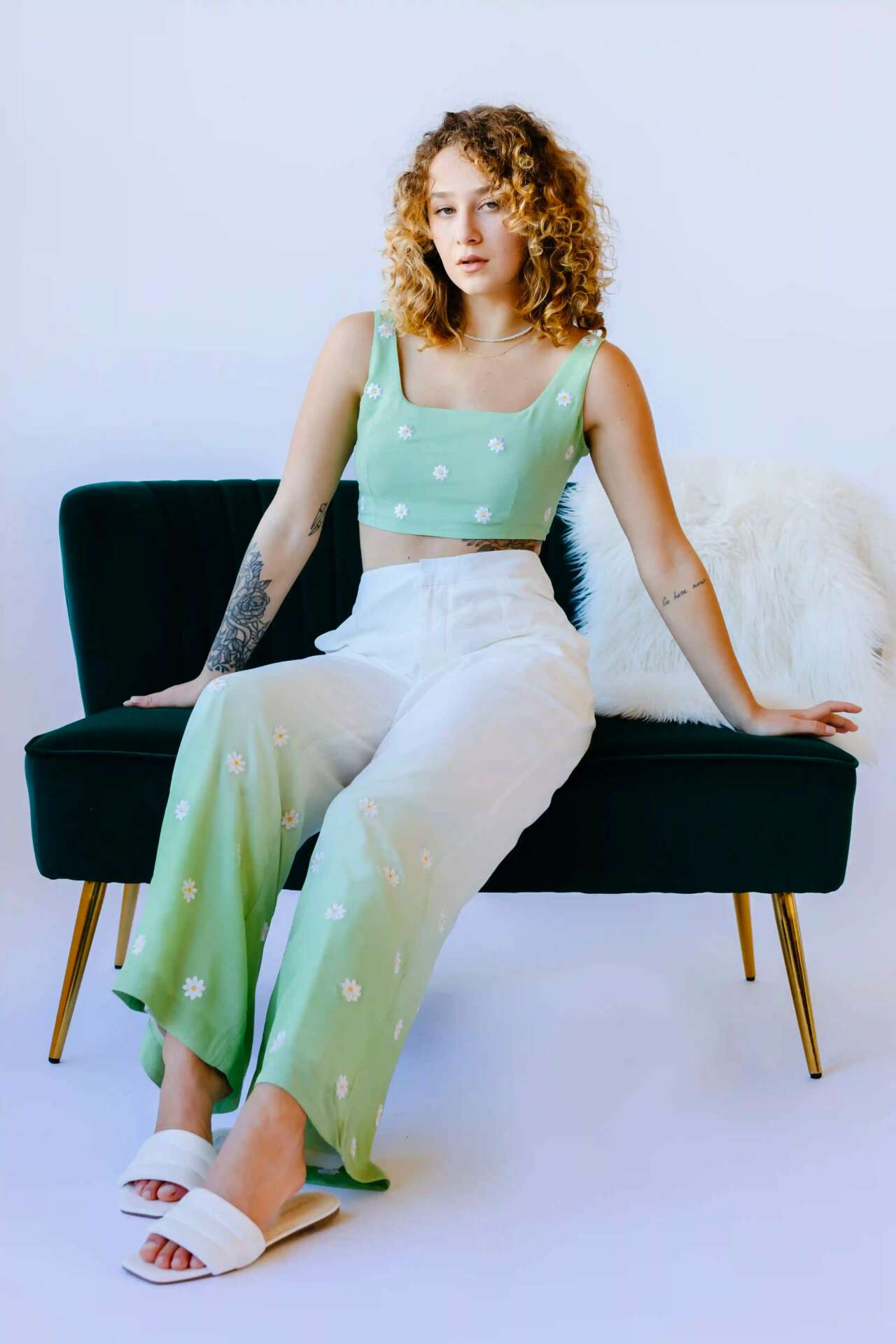
Great, appreciate you sharing that with us. Before we ask you to share more of your insights, can you take a moment to introduce yourself and how you got to where you are today to our readers
I am the founder, CEO and designer of Transcend, based in Seattle. I lived in India for the first 15 years of my life and was heavily inspired by the heritage art techniques (e.g. hand embroidery and block prints) in clothing. Such embroidery and print techniques have been passed down for many generations in India but often artisans are neither credited nor compensated fairly. This results in the garment workers leaving the clothing industry to look for better opportunities.. Well known couture houses like Dior and Versace have been incorporating India’s embroidery and prints in their designs for decades but there are little to no options in the ready-to-wear/mid market categories.
On the other hand, the consumers in North America are tired of uniform-like clothing that does not represent them and crave for an artful way to express themselves through their clothes. Transcend is connecting consumers to the makers while ensuring an ethical supply chain. Our supply chain is transparent so our customers know exactly who made their clothes. Not only do we pay living wages to our garment workers, but also share 2% of revenue with them to make them feel supported.
Transcend’s mission is to make India’s textile heritage accessible to women globally while putting a spotlight on the artists and artisans behind the designs. We partner with artisan communities in India to create high quality modern women’s clothing with beautiful embroidery and prints, while uplifting our supply chain and making good choices for the planet.
Since launching my first collection in 2021, I have been featured in British Vogue, 425 Magazine and Seattle Refined and several blogs and podcasts. I also showcased my SS23 collection during New York Fashion Week and landed our fist wholesale partnership with a clothing rental company, Armoire.
As the founder of Transcend, what makes me most proud is the positive impact that my business has on people and the planet. From the very beginning, we have made a commitment to sustainability by choosing natural fabrics only. This has helped us to divert plastic-based fabrics from landfills, which is a major problem in the fashion industry. In fact, it is estimated that 60% of fabrics produced are plastic-based, which can take hundreds of years to decompose and contribute significantly to environmental pollution.
Our adoption of a pre-order business model has been another major accomplishment. This has allowed us to prevent inventory from going to landfill and promotes sustainable practices in the fashion industry. By reducing waste, we are able to minimize our environmental impact and make a positive difference.
However, the thing that makes me most proud is the positive impact that Transcend has on the people in our supply chain. We have always been committed to taking care of our workers, which includes ensuring living wages and a 2% revenue share model from the beginning of the business. During a recent trip to India to meet our artisans, I heard directly from them how many of the female artisans who had never imagined making money are now the breadwinners for their families. This was an incredibly empowering moment and serves as a reminder of why we do what we do.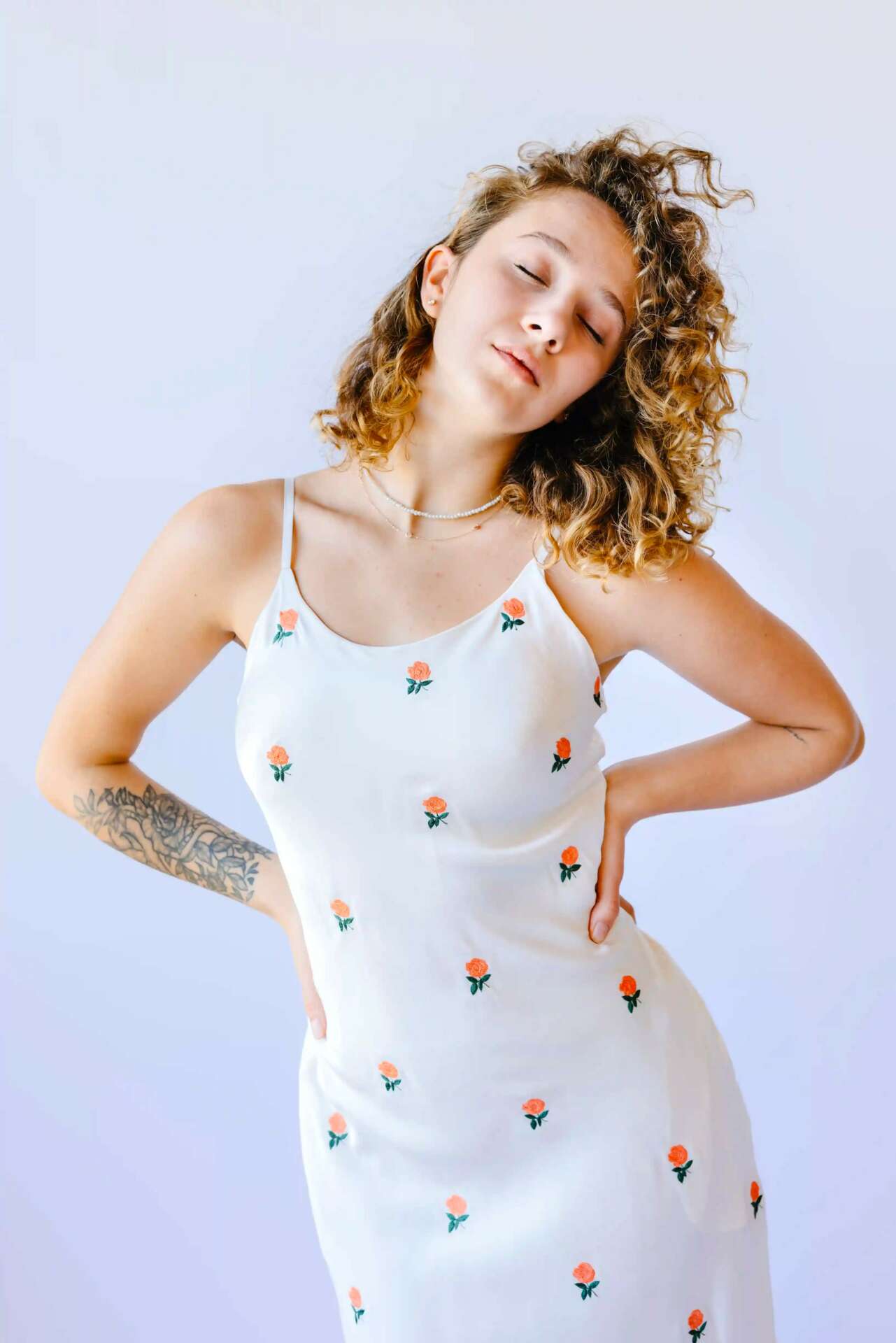
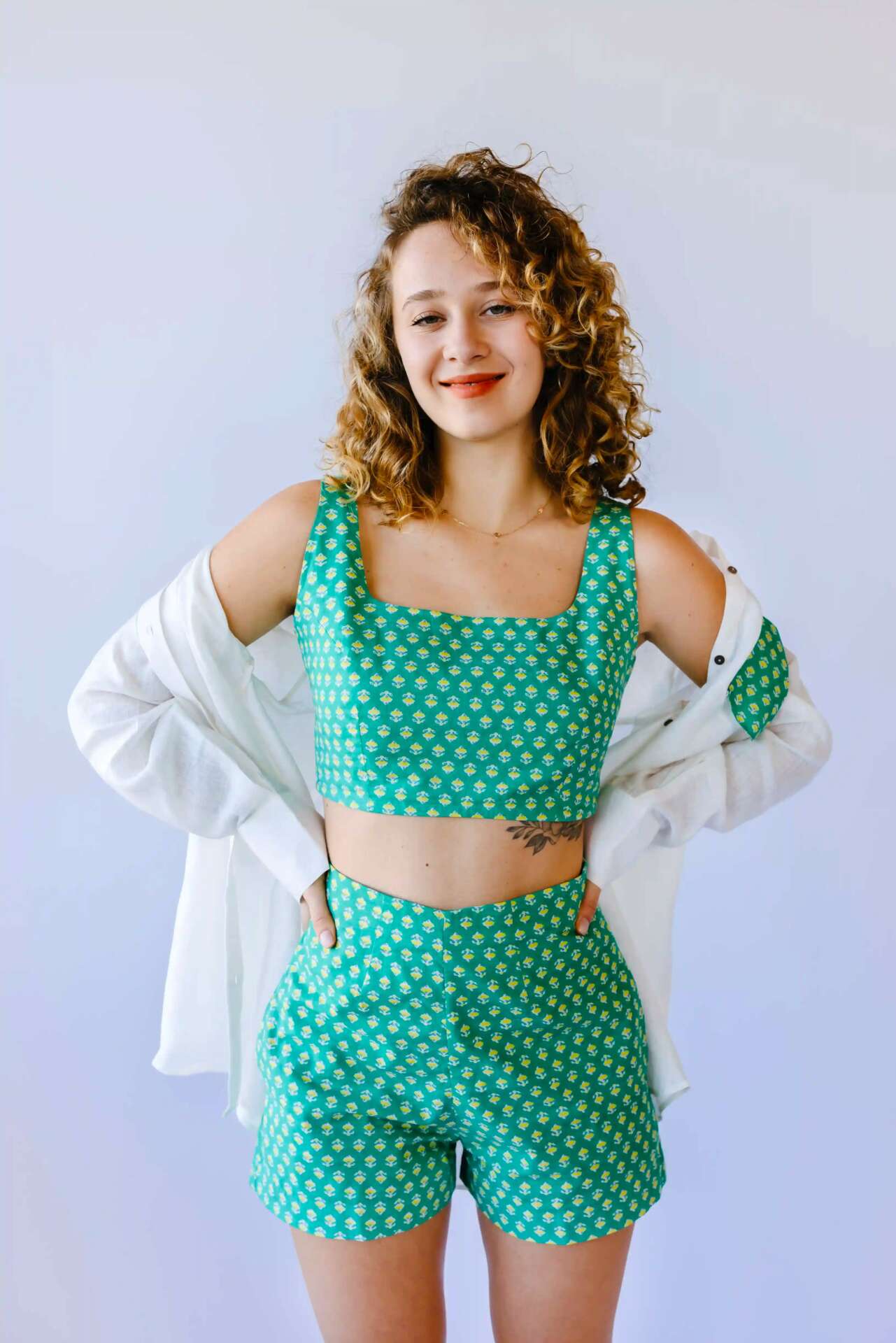
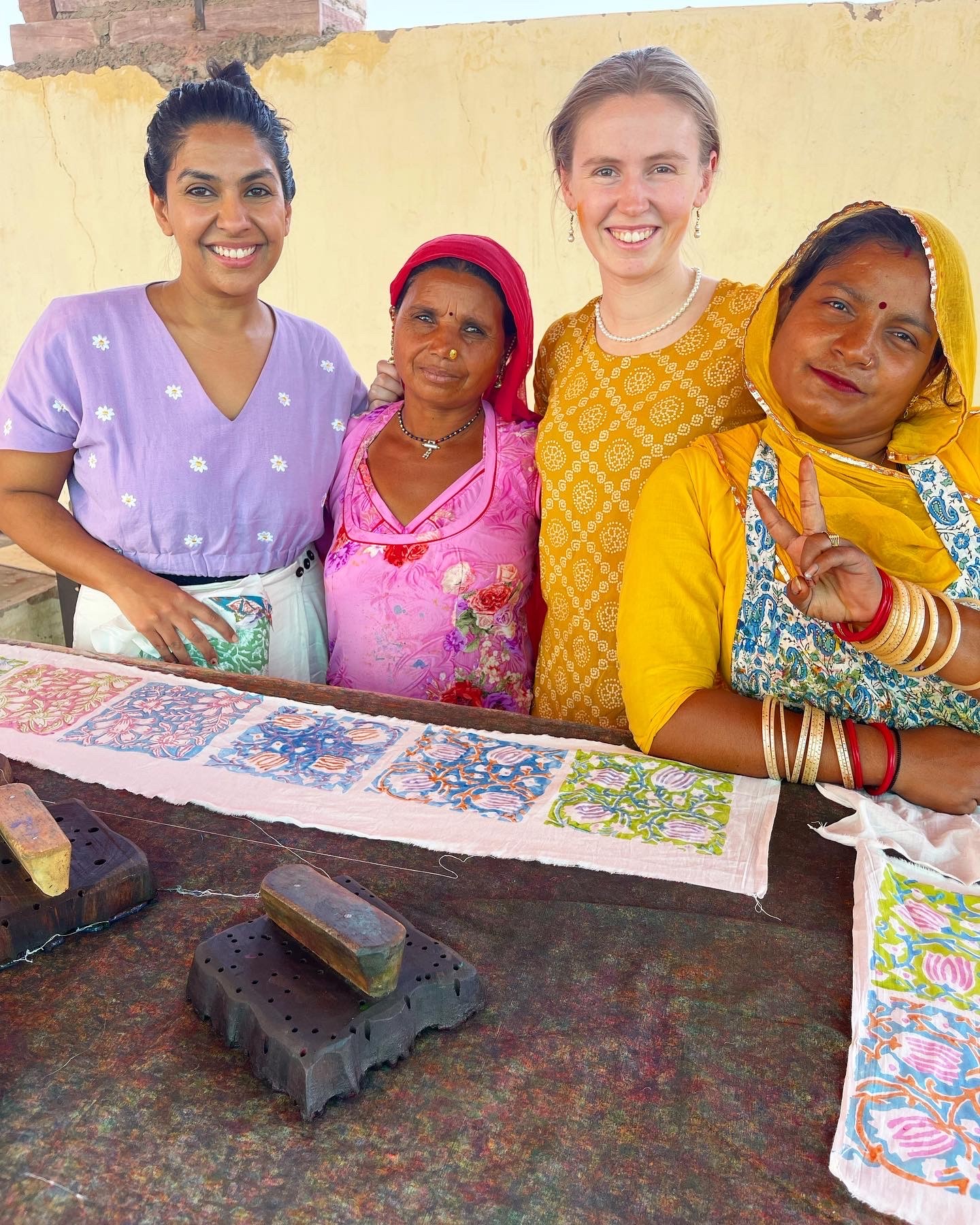
Can you tell us about a time you’ve had to pivot?
As a teenager, I always dreamed of launching my own fashion brand, but it wasn’t until my 30s that I actively started working on my business plan. It was difficult to vocalize my ambitions in a life where I was expected to be a wife, mother, and have a stable career. Creating space and time for my business was not easy, as it impacted everyone in the house.
I knew too many women with great ideas and ambition who wanted to follow their gut, but their ideas never saw the light of day because it was too hard to imagine creating space in their lives to pursue their dreams. But I encouraged myself to imagine that life, putting it down on paper, and step by step, I kept moving forward and built a support system that gave my idea wings.
During the many sleepless nights between my daughter’s nap, feed, and sleep schedule, I started jotting down my ideas. Slowly, the ideas turned into a business plan, and I decided to attend one of the biggest fashion industry trade shows, Magic, in February 2020. There, I met several suppliers and learned so much about the sourcing and buying process.
The following months involved countless phone and video calls with several artisan communities and manufacturers, pouring over every detail of my design and materials. It was important for me to have an open dialogue around my business philosophies and those of my suppliers. During this time, I onboarded interns, hired multiple freelancers, and networked with many amazing entrepreneurs who graciously shared their experiences and offered advice and their time to help me as a founder.
In the midst of the pandemic, I designed my first collection with an optimistic vision of what the world would be like when we finally came out on the other side. Within a few months, I received my samples and opened our doors to preorders. Fast forward to 2023, I have launched two more collections, been featured in British Vogue, and many other publications, blogs, and podcasts. I even showcased my latest collection at New York Fashion Week.
With the growth of my business, I was able to quit my corporate job and finally pivot to running my business full time in 2023. It hasn’t been an easy journey, but imagining a life of following my dreams, putting it down on paper, and building a support system around me gave me the courage to take the leap. And I’m glad I did.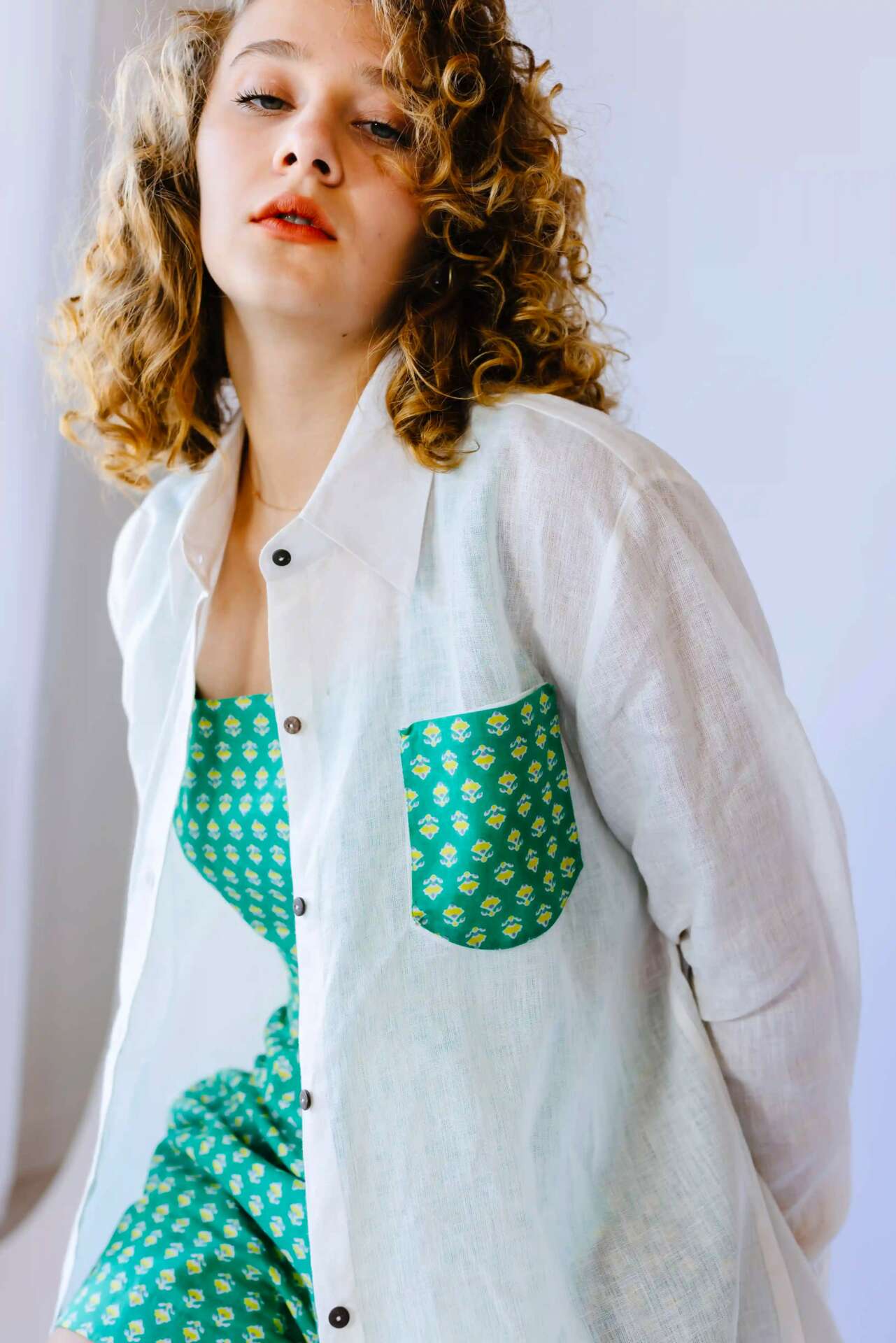
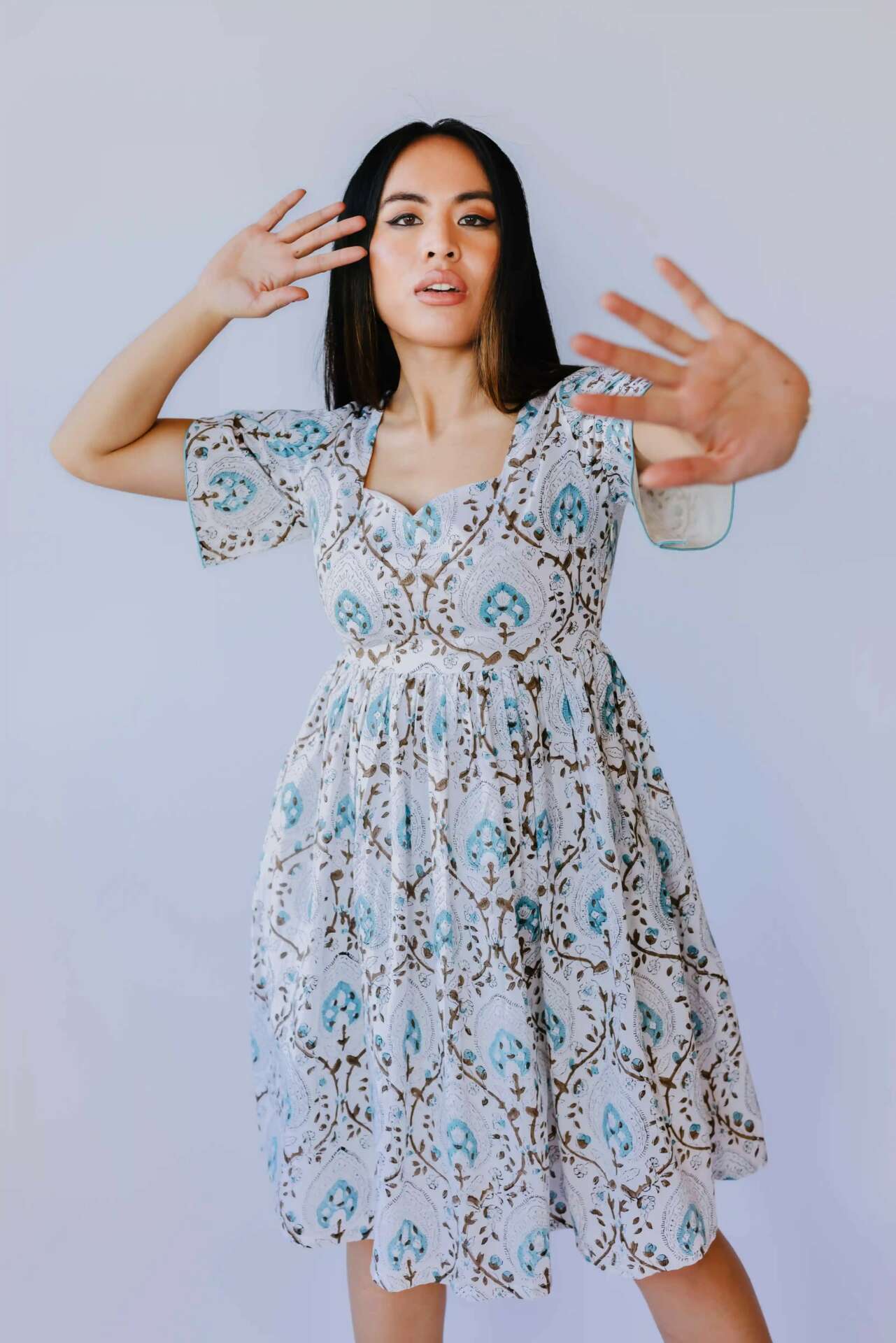
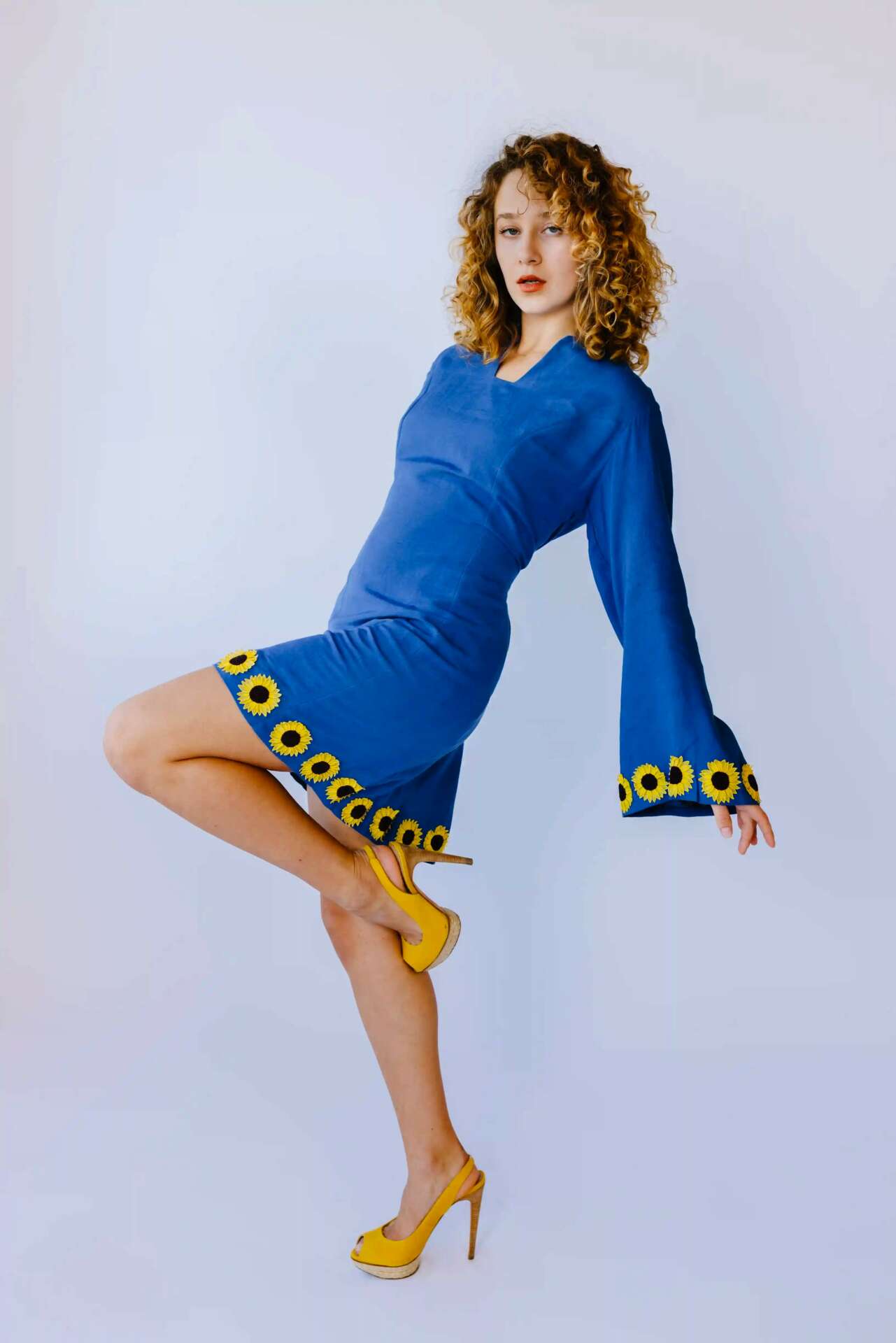
Okay – so how did you figure out the manufacturing part? Did you have prior experience?
As the founder of Transcend, I am committed to creating a business that not only makes beautiful products, but also operates with integrity and ethics. This means that from day one, I have made it a priority to prioritize an ethical supply chain. When considering new suppliers, I take the time to ask questions about their own business philosophies and practices, specifically with regard to labor practices, including details about salaries and benefits. Ensuring that our workers are paid a living wage is a high priority for Transcend.
Over the past three years, I have worked hard to develop a network of manufacturers and artisan communities that share Transcend’s mission of preserving heritage craft while supporting the artisans. As someone who is relatively new to the traditional fashion industry, I have seen firsthand how the industry is often set up to benefit big players at the expense of people and the planet. For example, finding manufacturers who were willing to produce based on preorders or in a range of sizes was often a challenge. However, I refused to compromise on my vision for Transcend, which included offering sizes 0 to 20 and manufacturing in limited quantities.
Despite the immense pressure to produce large quantities in limited sizes, I remained committed to my vision for Transcend. This meant finding manufacturers who were willing to work with us, even if it meant producing in smaller quantities or offering a wider range of sizes. At the end of the day, I believe that creating a business that is both beautiful and ethical is not only possible, but necessary. And I am proud to say that Transcend is proof of that.
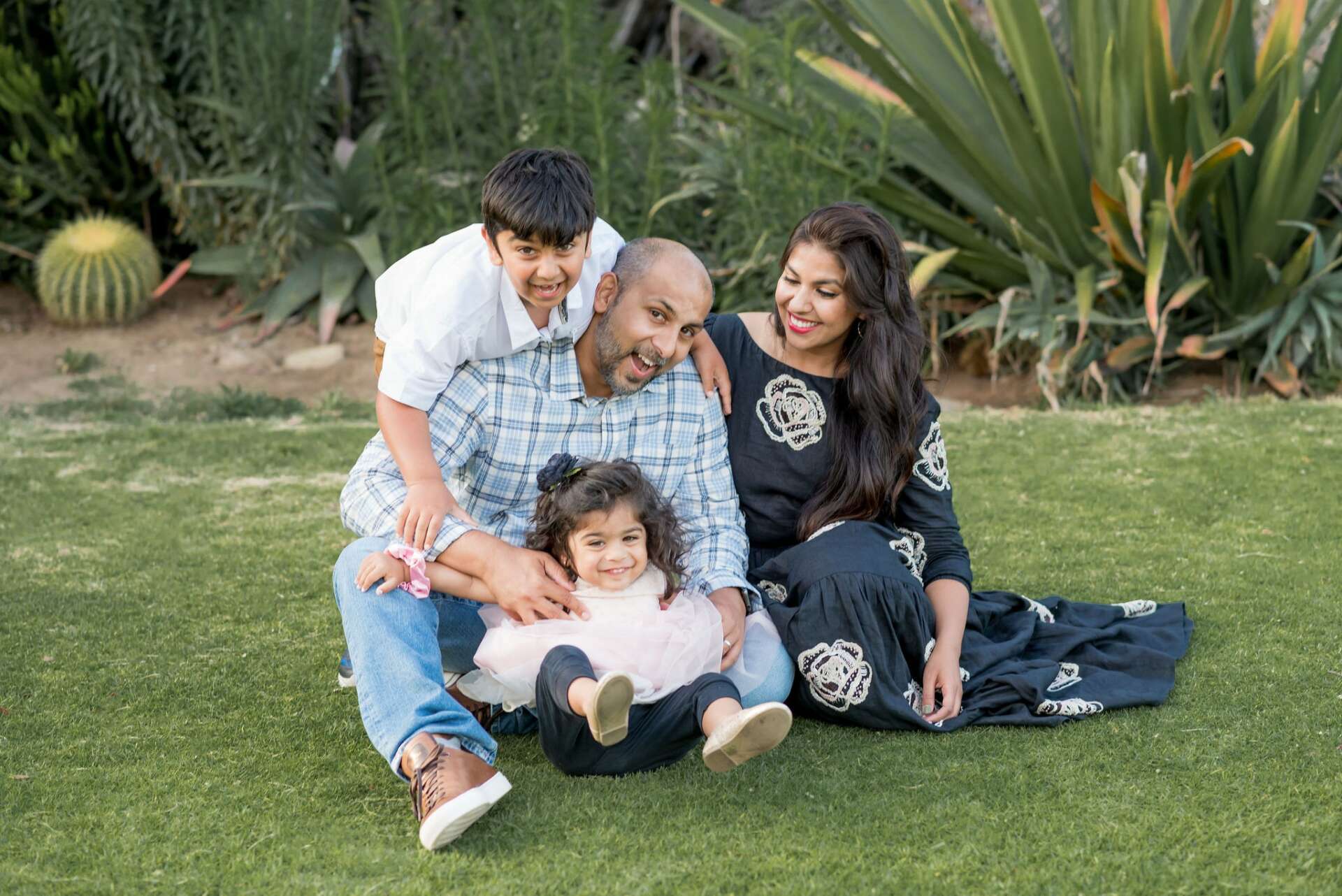
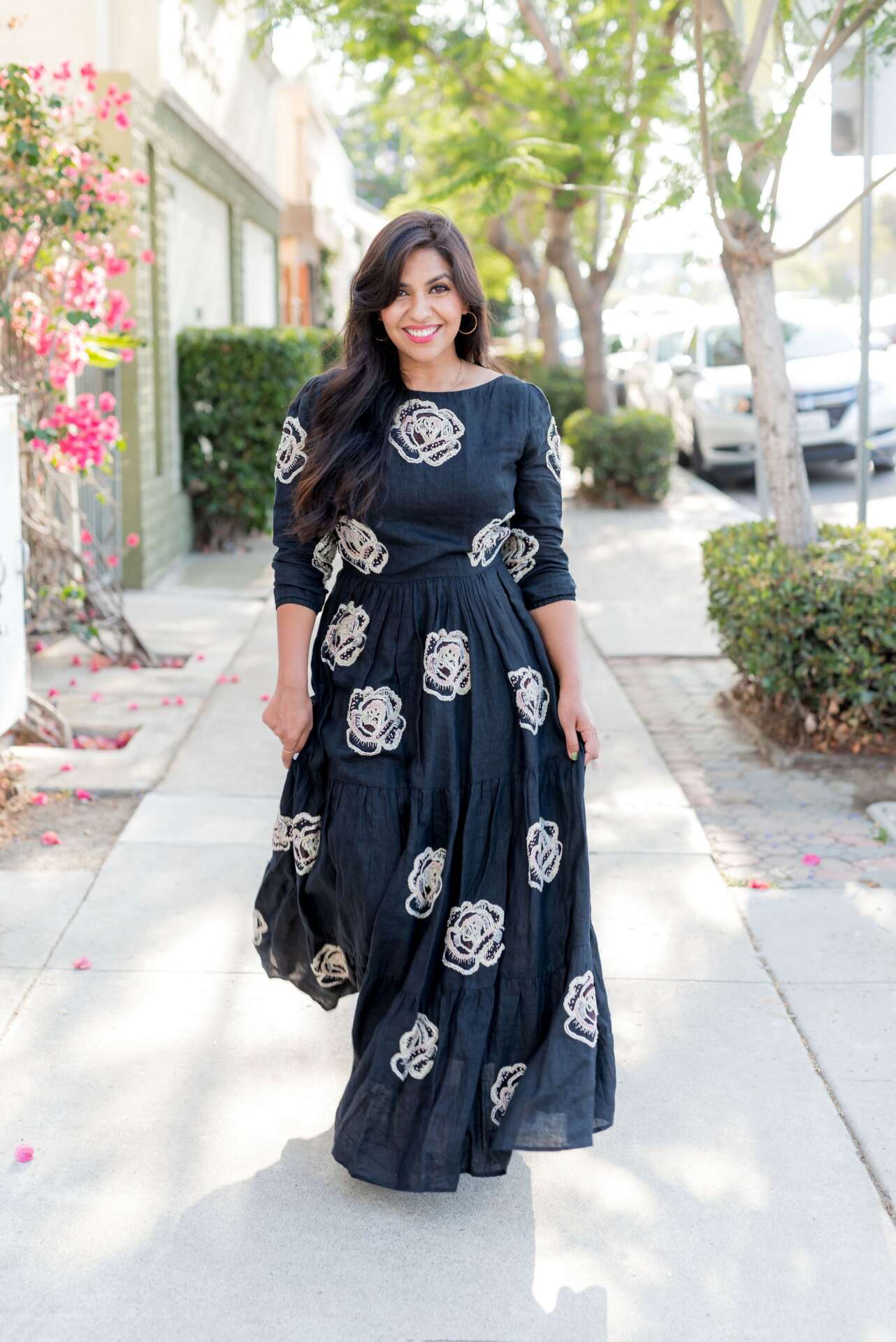
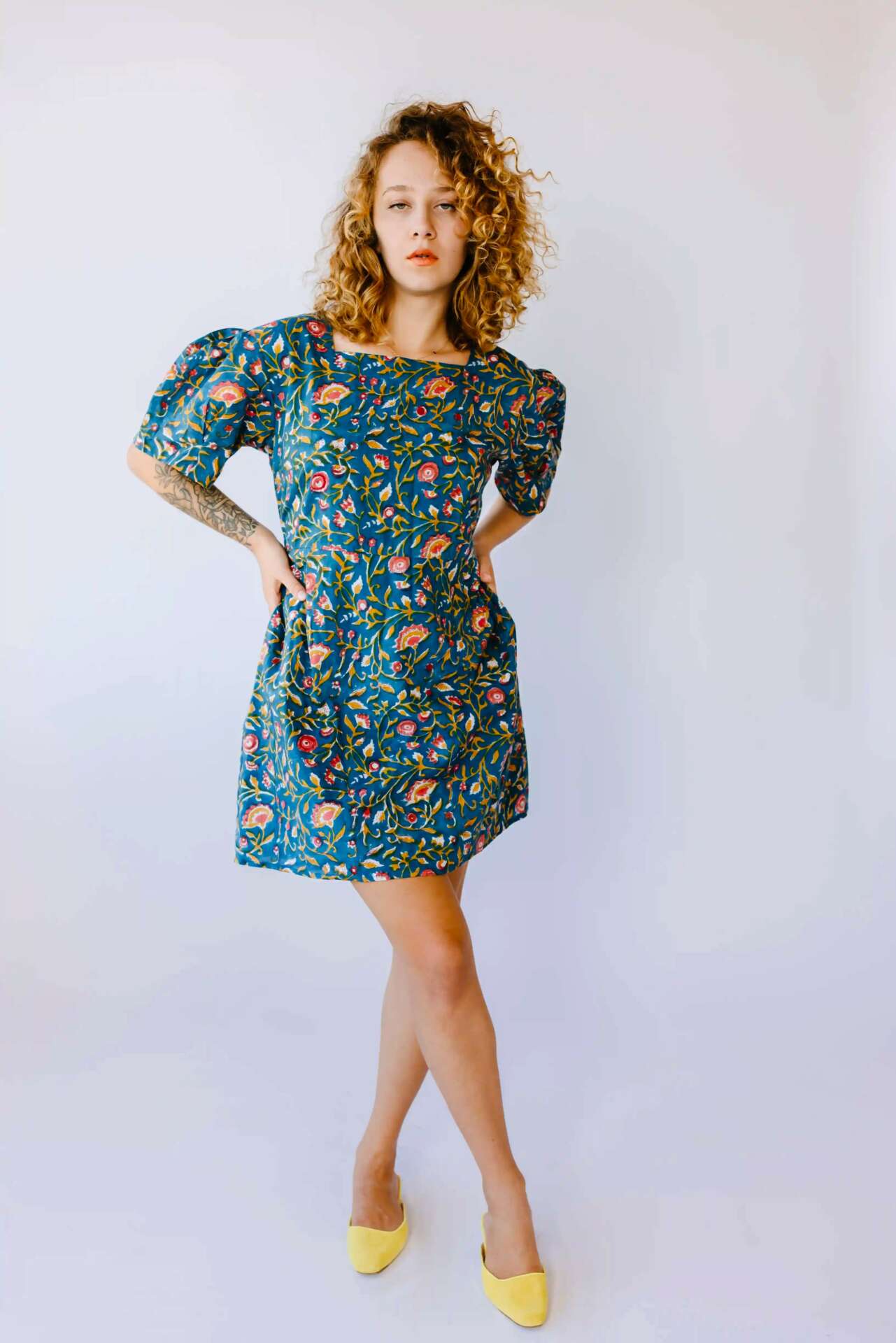
Contact Info:
- Website: https://weartranscend.com
- Instagram: https://instagram.com/weartranscend
- Facebook: https://facebook.com/weartranscend
- Linkedin: https://www.linkedin.com/company/weartranscend/
- Twitter: https://twitter.com/weartranscend
- Youtube: https://www.youtube.com/@weartranscend
Image Credits
Carina Fleckner and Vibi Murali


